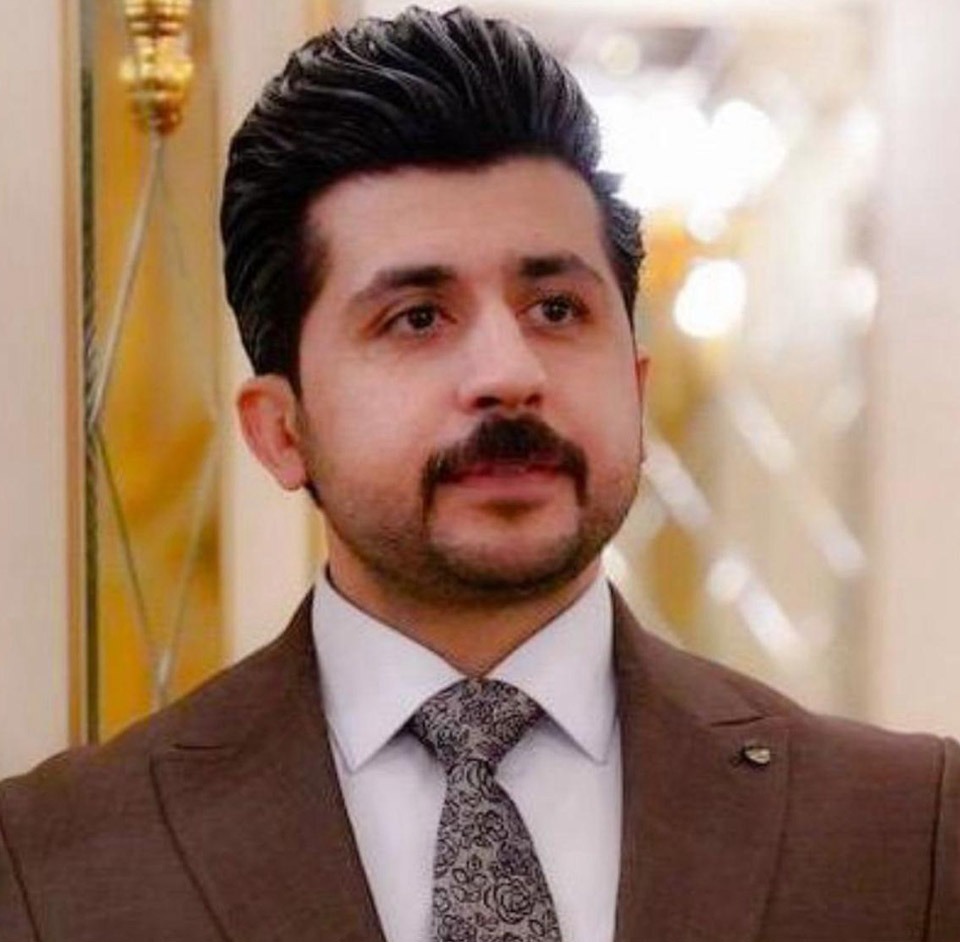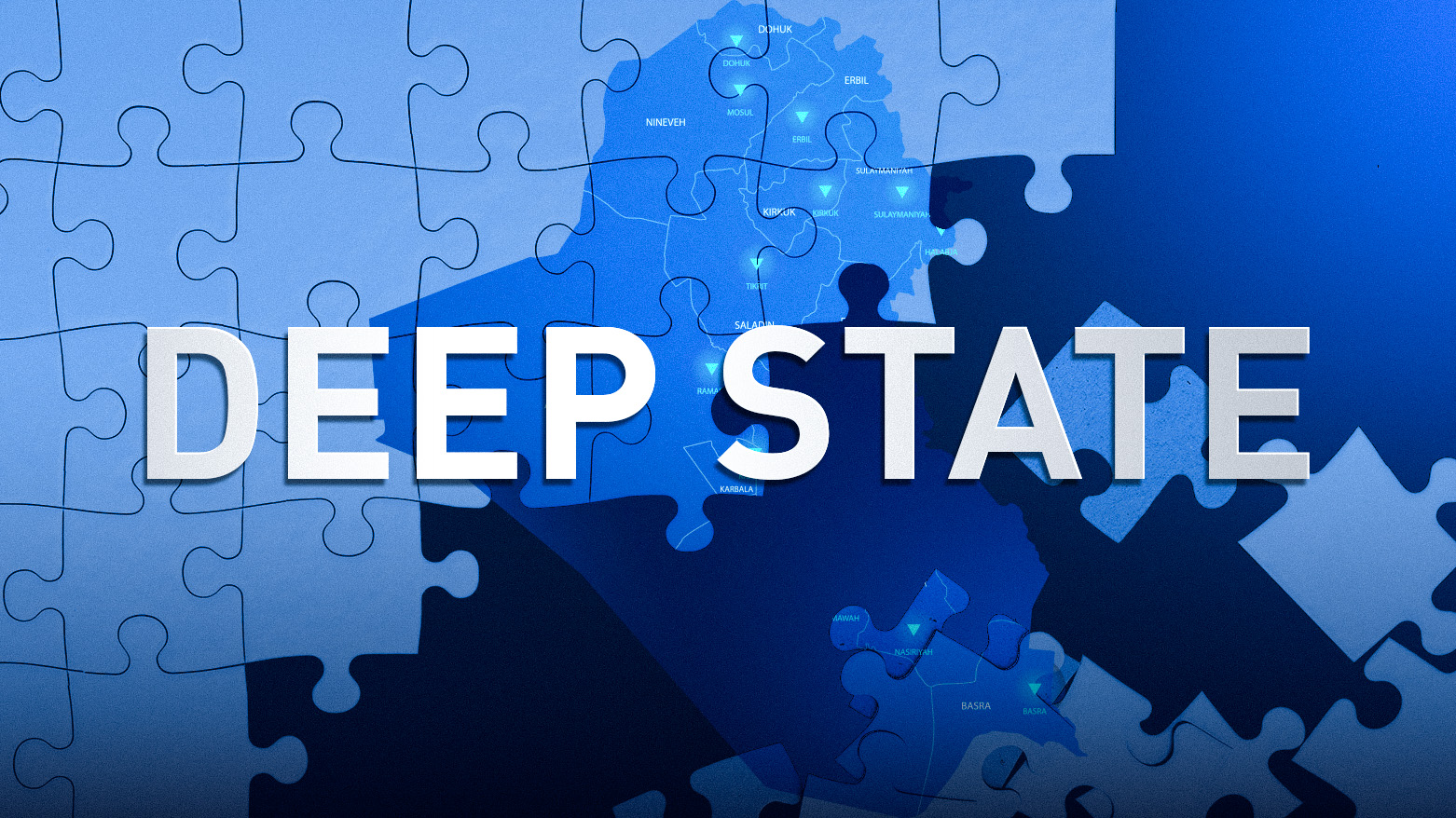
Wissam Massify
Editor
Deep State in Iraq against the Trump government in 2025
Since 2003, political factions in post-Saddam Hussein Iraq have cultivated power networks, vying to exert influence over ministries and government departments while appropriating the nation's oil resources.

The meaning of deep state in general (A purported clandestine network of predominantly unelected government personnel and occasionally private entities, particularly within the financial services and intelligence fields, functioning beyond legal parameters to sway and implement government policies. The deep state's influence derives from expertise, knowledge, connections, perception, skill, specialized abilities, customs, and collective values. Collectively, these alleged characteristics transform anonymous bureaucrats into a super-government that is answerable to no one).
Since 2003, political factions in post-Saddam Hussein Iraq have cultivated power networks, vying to exert influence over ministries and government departments while appropriating the nation's oil resources. According to Transparency International, Iraq is now considered among the most corrupt nations globally. It occupies the 21st position from the bottom.
Moreover, Militias in Iraq are a significant concern. Initially established to combat ISIS in 2014, these militias contributed to the reclamation of occupied territories. Nonetheless, they currently obstruct Iraq's security and national interests, adversely affecting ethnic, ideological, and sectarian issues. The political and military autonomy of militia groups, devoid of governmental oversight, along with the breakdown of national security protocols, constitutes the most significant harm. Iraq has transformed into a battleground for the resolution of global conflicts, eroding its diverse identities in favor of a singular Shiite identity. The presence of these militias has rendered Iraq a security worry and an investment risk. Financial and banking sanctions, along with capital withdrawal, have been implemented by the United States.
However, establishing a contractual democratic state in Iraq is feasible, albeit challenging. In Iraq, conflicting nationalisms have sidelined ethnic groups and fragmented national identity. The evolving kind of Iraqi local nationalism, patriotism, requires de-radicalization to establish a national identity. Sectarian, religious, or ethnic identity conflicts with Iraq's unity. A stable, decentralized Iraq is achievable. Following the fall of Iraq in 2003, neighboring nations, particularly Iran and Turkey, sought to expand their influence, prompting a regional restructuring to address this development. Non-state forces maintain security and ideological affiliations with these other nations. Iraq faces a difficult transition from non-state to (state) governance.
It is known that Donald Trump continues to be fixated on the "Deep State." He may have failed as president to implement his most ambitious initiatives, which aimed to reduce protections for civil servants – the thousands of federal employees who consistently serve under both Democratic and Republican governments. Trump has vowed to seize the opportunity if he is re-elected. His campaign promises to augment the President's authority to eliminate departments of "faceless bureaucrats" who could impede his objectives. Project 2025, developed by the conservative Heritage Foundation, also advocates for the replacement of several civil service positions with political appointees appointed directly by the president.
After the 2021 federal elections, political elites appointed Mohammed Shia al-Sudani as prime minister in October 2022. Since taking office, Prime Minister al-Sudani has focused on five main issues: fighting corruption, unemployment, poverty, economic change, and government services. In June 2023, Iraq's parliament passed the country's largest and first multiyear budget, 198.9 trillion Iraqi dinars (US$153 billion) for three years (2023–2025).
On the other hand, Kurdistan Regional Government (KRG) authorities provided an update in June 2023 citing good progress under its five-year plan to address human rights issues and other reform issues related to prosperity in the KRI, starting in May 2022.
Besides, the aim seems to be to establish a system based on sectarian and ethnic affiliations in Iraq, so relegating citizens to immutable, hereditary identities. The sects are increasingly serving as middlemen between individuals and the state, influencing aspects like citizens' political representation and rights of marriage, custody, and familial issues. Amending the 1959 law, as proposed, would signify a further advancement in institutionalizing Iraq's sectarian rift, so creating a rival authority to the state in numerous personal concerns.
Nevertheless, the re-election of Donald Trump may indicate a more aggressive U.S. campaign against Iranian influence in Iraq. Donald Trump perceives Iraq as a polluted wasteland primarily containing oil. Republicans aim to diminish Iran's influence; nevertheless, Iraq represents Iran's most significant achievement: asserting dominance over a substantial Arab nation by leveraging America's military interventions in Iraq. The presence of U.S. Marines in Iraq will not impact the latest initiative to curtail Iranian influence. The U.S. will employ financial intelligence, sanctions, and political warfare to counter the exploitation of the Iraqi petro-economy by Iran-backed militias for financing security risks. The Trump administration will contemplate inexpensive pressure against Iraq's government to sever Baghdad's ties with Iranian influence.
In my viewpoint, Republicans have observed a significant deterioration in the situation in Iraq since Trump's departure from office, as Iran-backed militias, despite their defeat in the October 2021 elections, successfully asserted their influence in the subsequent 2022 government formation, resulting in the appointment of Prime Minister Mohammed Shia al-Sudani, whom they disparagingly refer to as their “general manager.” This has engendered an intense, repressed yearning to alter the equilibrium in Iraq away from Iran. Future Vice President J.D. Vance, an Iraq veteran who considers the invasion America's most significant strategic error, perceives Iran's hegemony over Iraq as a failure of U.S. policy that necessitates rectification. In 2025 and subsequent years, should the U.S. administration endeavor to diminish Iranian influence in Iraq, it will do so not by deploying troops, but through an "intelligence increase."
Wissam Massify - Master’s degree in international law and diplomacy (UKH).
The views expressed in this article are those of the author and do not necessarily reflect the views of Kurdistan24.